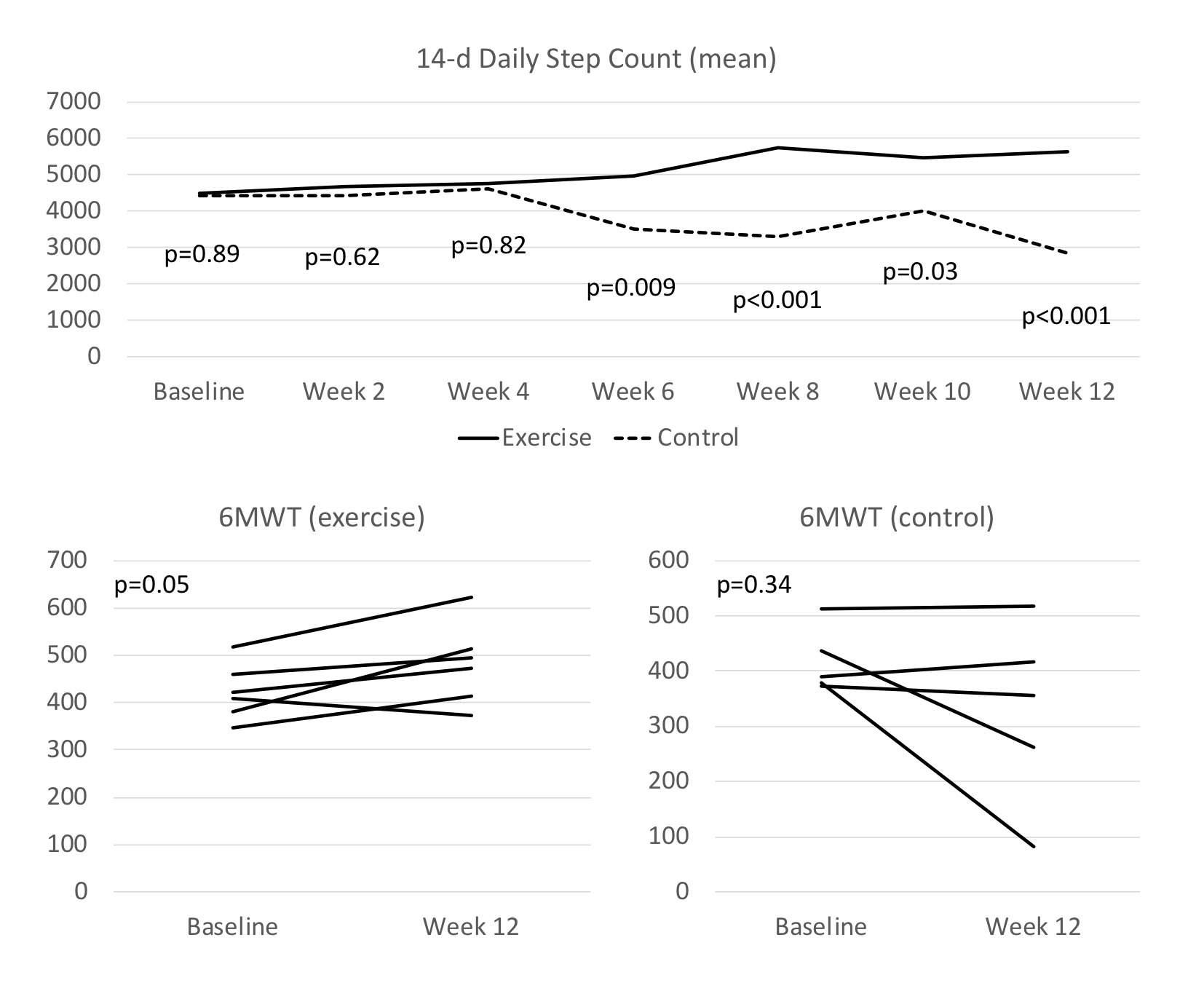A Randomized Pilot Trial of Home-Based Physical Activity Plus Dietary Intervention to Improve Physical Function in Patients with Advanced Liver Disease
1T.E. Starzl Transplantation Institute, University of Pittsburgh Medical Center, Pittsburgh, PA, 2University of Arkansas for Medical Sciences, Little Rock, AR, 3Stanford University, Palo Alto, CA
Meeting: 2019 American Transplant Congress
Abstract number: A315
Keywords: Liver cirrhosis, Lung transplantation, Patient education, Prognosis
Session Information
Session Name: Poster Session A: Liver: Recipient Selection
Session Type: Poster Session
Date: Saturday, June 1, 2019
Session Time: 5:30pm-7:30pm
 Presentation Time: 5:30pm-7:30pm
Presentation Time: 5:30pm-7:30pm
Location: Hall C & D
*Purpose: Deconditioning and frailty are prevalent among liver transplant (LTx) candidates and prehabilitation programs have been proposed in order to improve clinical outcomes. However, few patients have access to specialized training centers. We performed a randomized pilot trial to study the benefits of a home-based physical activity program (PAP).
*Methods: We included patients with cirrhosis referred for LTx evaluation at a tertiary hospital. Following informed consent patients were given a physical activity tracker (fitbit; San Francisco, CA) and their activity remotely monitored (fitabase; San Diego, CA) for 14 weeks. At the end of week 2, eligible patients were randomized to an active (home-based PAP) or control group. All patients received a dietary intervention including 11 g/d of an essential amino acid supplementation (Armada Nutr.; Spring Hill, TN). PAP consisted of biweekly educational and counseling sessions to discuss home-based opportunities to increase daily physical activity and barriers to exercising, and to establish daily step count goals for each period. 6-minute walk test (6MWT) was used to assess changes in aerobic fitness.
*Results: A total of 20 subjects aged 55±9 (male 60%), with MELD-Na 17±4 were enrolled. Etiologies were: 6 HCV, 5 NASH, 4 alcohol, and 5 other. Three patients were eliminated at baseline and 17 were randomized (9 to active). There were no significant baseline differences with respect to liver (MELD 16±4 and 19±3 [p=0.10], grade 2-3 ascites 2/9 and 2/8, overt hepatic encephalopathy 4/9 and 3/8) or physical function (daily steps 4494±3057 and 4933±4406 [p=0.9], 6MWT 401±63 and 416±47 m [p=0.63]) between active and control groups, respectively. At baseline, 9 (53%) patients were sedentary performing <2500 steps/day. Changes in daily step count and in 6MWT are shown in Figure. Comparing poorest and best 2-week performance periods to baseline, exercise group had a proportional change in daily steps of -8% and 58%, contrasting the control group at -45% (p=0.03) and 28% (p=0.29), respectively. One control patient was denied LTx after becoming too frail.
*Conclusions: Our home-based PAP was successful in maintaining physical performance among patients with cirrhosis, and it improved aerobic fitness. In spite of a dietary intervention, deterioration in physical function among controls was severe in some candidates even to the point of precluding LTx.
To cite this abstract in AMA style:
Chen H, Ferrando AA, White MG, Pauly M, Bartter T, Dunn MA, Kim WR, Duarte-Rojo A. A Randomized Pilot Trial of Home-Based Physical Activity Plus Dietary Intervention to Improve Physical Function in Patients with Advanced Liver Disease [abstract]. Am J Transplant. 2019; 19 (suppl 3). https://atcmeetingabstracts.com/abstract/a-randomized-pilot-trial-of-home-based-physical-activity-plus-dietary-intervention-to-improve-physical-function-in-patients-with-advanced-liver-disease/. Accessed March 2, 2026.« Back to 2019 American Transplant Congress

